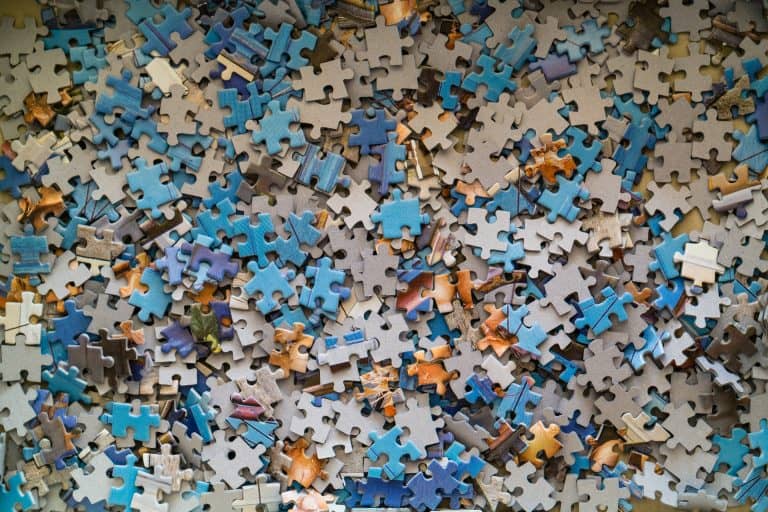The idea of a jigsaw puzzle can be appealing for many reasons. It is an activity that requires patience and concentration, which are important skills to develop in order to stay sharp as you age. A person who has been putting together puzzles since they were young will likely find it easier than someone who is new to the hobby. There are several strategies that a novice can use to make the process more enjoyable, easy, and effective though!
In this article, we will explore some ideas for solving puzzles successfully and quickly.
Strategy One: Find a Good Working Area
Make sure the table you are working on is clear of distractions. Put all other items in a cupboard or closet, and cover any nearby surfaces to reduce the clutter that can slow down your progress as you put together pieces.
Having a clear area to work on will make the process faster and reduce frustration.
Strategy Two: Dedicate Time to Solving Puzzles
One of the best ways to keep your mind sharp is by solving puzzles. Puzzles are a great brain workout and can be fun, too! It’s important that you dedicate time each day or week to working on different jigsaw puzzle strategy problems to see continued improvement from one level up to more advanced levels. Some may find it helpful to work on puzzles in the morning before they start their day or at night when they are winding down, but what is important is that you make time to work on and improve your puzzle skills. Discover more about the cognitive benefits of puzzles in how puzzles enhance mental acuity.
Strategy Three: Study the Image
Make sure you take time to really look at and study the image before beginning. Keep in mind any patterns or shapes that might be similar throughout, such as a color palette or an object appearing over and over again. This will help guide your eye when picking pieces out of the pile! For tips on studying puzzle images and improving your strategy, check out how to analyze puzzle images effectively.
Strategy Four: Think of the Pieces as a Map
Think of the pieces in your jigsaw puzzle as a map that you are putting together. Every piece is part of an overall picture, and if one is missing or out of place, it won’t make sense to see what’s going on with our design! We need all those little bits for everything else to fall into place. The best way to put together a jigsaw puzzle is by starting with the corners. Paying close attention when you are picking pieces out of the pile will also help immensely in making sure that they match up correctly. Learn more about effective jigsaw puzzle strategies in mapping out your puzzle solving approach.
Strategy Five: Enjoy the Process
It’s amazing what a change of environment can do to help you see the pieces in your puzzle as a whole, rather than just broken-down bits. Putting together puzzles is an enjoyable way to escape from daily life and spend some time on yourself with no pressure or stress—it will be worth all of those moments that might have felt challenging, and it could even be the key to solving that puzzle! Explore how enjoying the process can enhance your puzzle-solving experience in the benefits of a stress-free puzzle environment.

